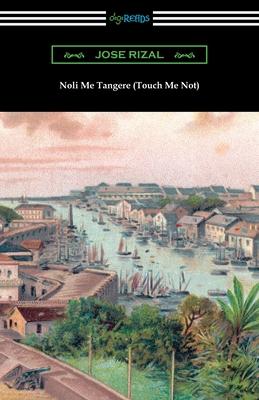At the center of "Noli Me Tangere (Touch Me Not)" by Philippine national hero Jos Rizal is the conflict against Spanish colonialism. The Philippines, which is named after King Philip II of Spain, was ruled by the Spanish empire as a colony from 1565 until the Philippine Revolution ended this rule in 1898. For his part in the Philippine Revolution, Jos Rizal was tried and convicted for rebellion, sedition, and conspiracy. His sentence was to be death by firing squad. Juan Crisstomo Ibarra, the main character of "Noli Me Tangere (Touch Me Not)", returns to the Philippines after a seven year absence studying in Europe. He is betrothed to the Mara Clara, the beautiful daughter of Captain Tiago. With this work Rizal set out to write a novel that would expose the ills of Philippine society and in so doing created a passionate love story set amidst the backdrop of the political conflict against a repressive regime. "Noli Me Tangere (Touch Me Not)" and its sequel "El Filibusterismo" are exceptional firsthand documents of the real struggles faced by the Philippine peoples at the end of the 19th century. This edition is printed on premium acid-free paper.

At the center of "Noli Me Tangere (Touch Me Not)" by Philippine national hero Jos Rizal is the conflict against Spanish colonialism. The Philippines, which is named after King Philip II of Spain, was ruled by the Spanish empire as a colony from 1565 until the Philippine Revolution ended this rule in 1898. For his part in the Philippine Revolution, Jos Rizal was tried and convicted for rebellion, sedition, and conspiracy. His sentence was to be death by firing squad. Juan Crisstomo Ibarra, the main character of "Noli Me Tangere (Touch Me Not)", returns to the Philippines after a seven year absence studying in Europe. He is betrothed to the Mara Clara, the beautiful daughter of Captain Tiago. With this work Rizal set out to write a novel that would expose the ills of Philippine society and in so doing created a passionate love story set amidst the backdrop of the political conflict against a repressive regime. "Noli Me Tangere (Touch Me Not)" and its sequel "El Filibusterismo" are exceptional firsthand documents of the real struggles faced by the Philippine peoples at the end of the 19th century. This edition is printed on premium acid-free paper.